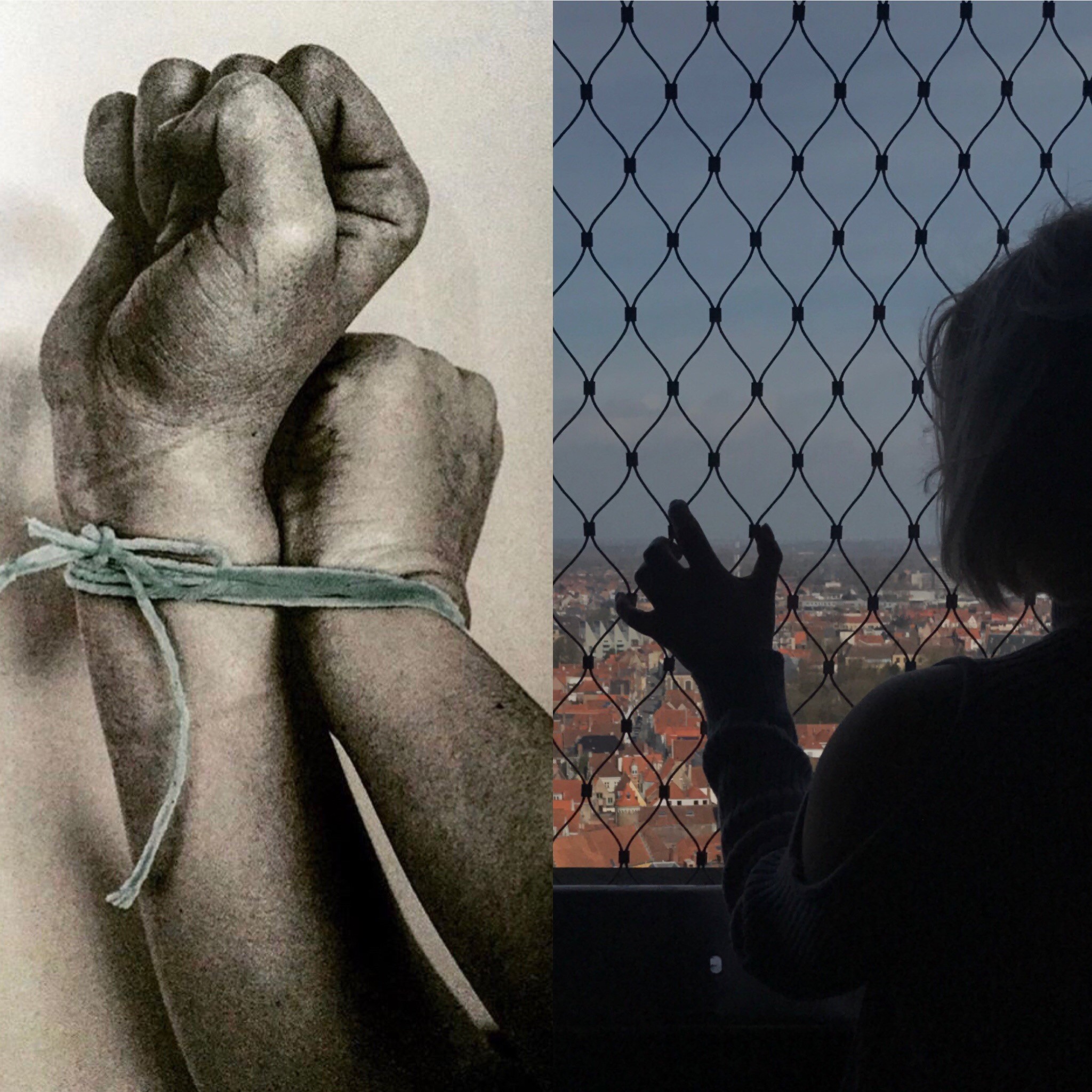Hidden beneath a sleeve
One of our Young Champions powerfully describes her experience of self-harm.
I read an article yesterday, it reminded me of my own experiences, the fear, the sense of compulsion, the driving need. It’s an experience that bewilders many, and into the gap of knowledge pour myths, fears, and a kind of casual brutality.
They’re just doing it for attention. Doing it to be different. Doing it for acceptance. Doing it to annoy their parents. Doing it because they don’t have enough to do. Doing it because it’s ‘in’.
Falling far down the rabbit hole of trying to prove pain to people who didn’t believe me. Their belief, compassion and acceptance is an unwinnable thing. Many years and moments of suffering poured out seeking it. Every day going down, deeper into self-destruction, closer to death. I grew up in a world where pain was only real if someone else believed it existed.
Self-harm is complex and full of contradictions. Something I often think is that it is common in the animal kingdom. Animals and birds experience inescapable pain – loneliness, captivity in an unsuitable cage: too small, too stressful, too close to predator species, overcrowded, or physically ill and suffering, many will head bang, pluck their own feathers, chew or lick off their skin, tear out their nails and claws. On one level, self-harm is a universal response to certain kinds of suffering. But this is only the context, the broad picture.
Zooming right in, we get vast diversity in who, how, and why. Some find a single cause and many, like me, have a more complex web of reasons, needs, battles.
Some harm to punish themselves. Some to reclaim their own body. To mark important events. To discharge suicidal distress and make it safely through the night. Some to break out of dissociation and stop feeling numb. Others to trigger numbness when feelings are overwhelming. To push the boundaries of skin and self and the rules of what is acceptable. To prove their pain to themselves or someone else who isn’t listening or doesn’t believe. To mark the empty days. To get revenge on those who think they own us. To be ugly so we will not be desired and harmed. To let out the badness. Or simply because it inexplicably, felt right.
We self-harm because something is wrong, because of pain, because it is the best way we’ve found to meet a need at that point in time which we don’t understand or accept or can’t express.
I suppose physical pain can create an intense focus for my thoughts, it shifts me out of a bad moment into a deeply needed altered state and creates a powerful sense of ownership over my body. It has eased suicidal despair by providing a distraction from the issue itself. And for a short while the internal monologue of how stupid, ugly, selfish, fat and pathetic I was would go quiet. I felt strong instead of weak. I felt I’d proved something to myself. I felt like I could finally take off my armour and rest for a little while. But it never lasts long.
The next morning, I am drowning in shame intensified beyond anything previously experienced. The sight of the wounds would trigger rage at myself. Why was I so weak and pathetic? Such a drama queen. I sided with others brutal assessment of my character and motivation.
Once the wounds healed and were less visible, I would feel panic. So the experience, like all addictions, creates the conditions to feed itself, becoming its own trigger and containing both the problem and the remedy.
When others reacted with intense anger, shaming, and minimalistic comments I switched to things that caused pain but left no marks on my skin. They were a poor substitute for the rituals but not doing anything felt impossible.
I am going to have to learn to live with the scars and the places where there aren’t any scars. Learn to listen when people tell me my self-harm is attention seeking, but instead try to validate their own anxieties, gently correcting attention seeking to connection seeking. Trying to bridge the gap and make the incomprehensible make some kind of sense, or maybe some kind of compassion...
If you or someone you know needs help right now, you should, if possible, try to talk to a parent, carer or trusted adult. If talking to an adult is not possible, visit our urgent help page which includes organisations that are available 24 hours a day, 7 days a week.
You can also find free mental health support services for young people aged up to 25 on the Youth Wellbeing Directory.